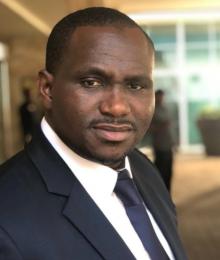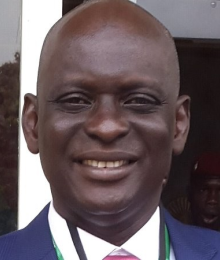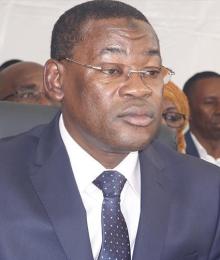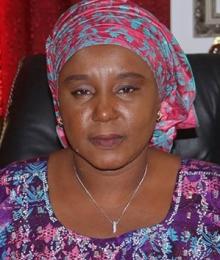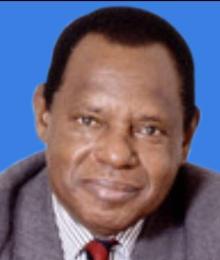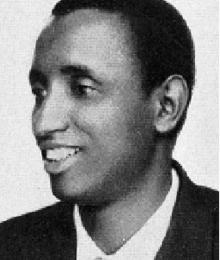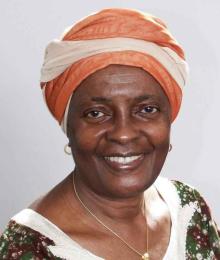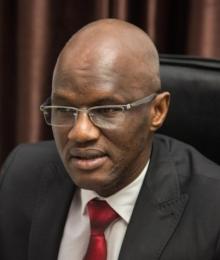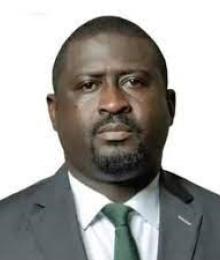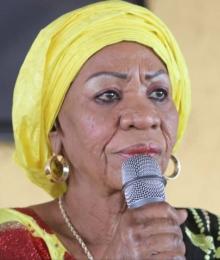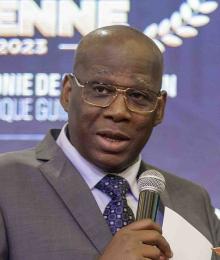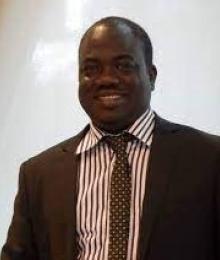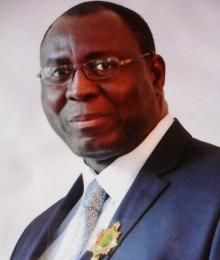
Elhadj Demba Fadiga is a prominent figure in Guinea's socio-political landscape, hailing from Kindia in Lower Guinea. After excelling academically and building an international career within the Bolloré Group, he held several strategic positions, including Director of Maritime Affairs.
His commitment has been evident through his efforts to restore traditional chieftaincy in Lower Guinea, his role as a representative for Kindia in the National Assembly—where he chaired the Land Use, Energy, Transport, and Public Works Commission—and his numerous initiatives for the development of his native region (road infrastructure, electrification, telecommunications). Honored as a Commander of the National Order of Merit of the Republic of Guinea in 2008, he was also appointed as an Ambassador Extraordinary and Plenipotentiary, embodying the spirit of a patriot dedicated to the advancement of his country.
Introduction
In the socio-political landscape of Guinea, some individuals stand out for their exceptional journey and dedication to their country's development. Elhadj Demba Fadiga is undeniably one of those remarkable personalities whose impact has transformed various aspects of national life. From his outstanding academic background to his commitment to traditional chieftaincy, his impressive professional career, and his political involvement, his path reflects a deep attachment to his roots and a clear vision for Guinea's future.
Origins and Education
A native of Kindia in the Lower Guinea region, Elhadj Demba Fadiga grew up in a deeply religious family where faith and discipline were the pillars of everyday life. He is the grandson of the late Karomoko Fodéba Fadiga, a wealthy man who had a close friendship with the illustrious Alpha Yaya Diallo, a historical figure in Guinea.
After beginning his studies in Kindia, he continued his education at the Lycée 2 Octobre before enrolling at the Gamal Abdel Nasser University. As a brilliant student, he graduated at the top of his class in administrative and accounting sciences, which immediately led to his appointment in teaching. He began his career as a professor of accounting and management at the Faculty of Administrative and Accounting Sciences, marking the start of a promising professional journey.
Professional Career
Elhadj Demba Fadiga's professional path took a significant turn in November 1981 when a presidential decree appointed him as a trainee inspector of financial and accounting services. However, family conflicts over his grandfather's inheritance pushed him into exile. As he himself explained: "It was very difficult to bear because slander coupled with denunciation was the deadly weapon awaiting those who dared to rise above. We, who managed to succeed, became targets for all sorts of harassment."
His exile led him to Ivory Coast, where he joined the Société Commerciale des Ports de l'Afrique de l'Ouest (SOCOPAO). Starting as the head of the disbursement service, he quickly rose to become the head of analytical accounting and a management controller. "The company had 1,045 employees, including 45 expatriate and local executives, and I was among them, despite having studied in Guinea," he proudly recalls.
Return to the Homeland
In the late 1980s, as the civil war in Liberia claimed many Guinean lives and the social climate in Ivory Coast deteriorated with the rise of "Ivoirité," Elhadj Demba Fadiga decided to return home. "I was well integrated in Ivory Coast, but witnessing our compatriots perish in Liberia, combined with thinly veiled threats from some advocates of 'Ivoirité,' pushed me to return," he shared.
Back in Guinea in 1990, he resumed his position at SOCOPAO Guinea at the request of the general management based in Puteaux, France. The company, then facing financial difficulties, relied on his expertise to turn the situation around. "My goal was to venture into business, but the company insisted on my return to service in Guinea," he explained.
At the time, the company had only 22 employees and was entangled in issues related to "third-party detentions." Under his leadership, and despite a challenging economic environment, the company experienced a significant recovery. This period also marked the beginning of his collaboration with Vincent Bolloré, who had acquired Delmas, later known as S.D.V.
Integrated into this new structure as the Head of Administrative and Financial Affairs of SOCOPAO Guinea, he actively participated in the merger of several entities (Delmas, SOCOPAO, SAGA SOAEM) under the Bolloré Group. This restructuring gave birth to Bolloré Africa Logistics, where he continued his career as the Director of Maritime Affairs and Quality Manager. "I had the honor of holding this position with great regard, especially since there were only three Maritime Affairs Directors across Africa," he noted.
To prepare for these new responsibilities, he received extensive international training: English in Ghana, commercial techniques and shipping in Etretat (France), management in Saint-Germain-en-Laye (France), and shipping in Seoul, Hong Kong, and Taipei.
Commitment to Development
Alongside his roles within the Bolloré Group, Elhadj Demba Fadiga held several strategic positions: President of AGEMAP-BMOP (Guinean Association of Port Handling Companies and Port Workforce Bureau), member of the Board of Directors of the Autonomous Port of Conakry, and Vice-President of the Guinean Agency of Maritime Consignees (AGUICOM).
His dedication and services to the nation earned him the title of Ambassador Extraordinary and Plenipotentiary and the distinction of Commander of the National Order of Merit of the Republic of Guinea in 2008.
Traditional Chieftaincy in Lower Guinea
One of Elhadj Demba Fadiga's major contributions to Guinean society is his pivotal role in the restoration and recognition of traditional chieftaincy in Lower Guinea. Recognizing the institutional and customary void left by the abolition of this institution under the First Republic, he committed to recreating a framework to guide the youth.
“I felt it was necessary to create a customary framework in Guinea, especially in Lower Guinea, to provide orientation for the youth so they wouldn't stray due to a lack of guidance,” he explained.
Following the example of traditional chieftaincy in Ivory Coast, he initiated the appointment of a Kountigui in Kindia, which led to the eventual installation of a Kountigui for all of Lower Guinea.
Political Engagement
Elhadj Demba Fadiga's commitment to his homeland naturally led him into politics. "The people of Kindia felt it was inconceivable to seek a deputy elsewhere," he shared. Although not a member of the RPG (Rally of the Guinean People), he was co-opted by the party as a parliamentary candidate. As a deputy, he chaired the Commission on Land Use Planning, Energy, Transportation, and Public Works in the National Assembly.
During his term, he contributed to the examination and adoption of nearly 300 laws, agreements, and conventions, including significant ones related to energy, infrastructure, and national development.
Vision for Guinea's Future
When asked about Guinea's current political transition, Elhadj Demba Fadiga expressed optimism: "This transition has significant potential for our country's socio-economic development. Despite some minor flaws inherent to any human endeavor, the positives outweigh the negatives."
His call to the nation resonates as a political testament: "I urge all sons and daughters of this beloved country to come together in forgiveness and social cohesion so that we can build a model of comprehensive development for the benefit of all."
Conclusion
Elhadj Demba Fadiga's journey epitomizes the legacy of a man who dedicated his skills and influence to his country's development. His visionary leadership, resilience, and tireless dedication have left an indelible mark on modern Guinea, making him an inspiring figure for current and future generations. Through his multifaceted contributions, Elhadj Demba Fadiga embodies the spirit of a true patriot—deeply rooted in his heritage yet firmly focused on the future.











